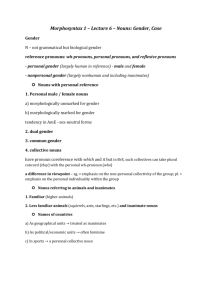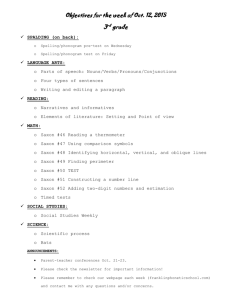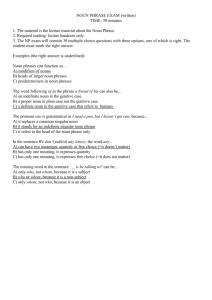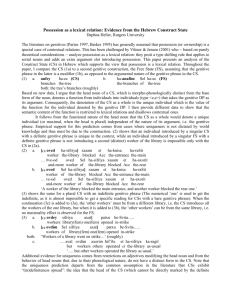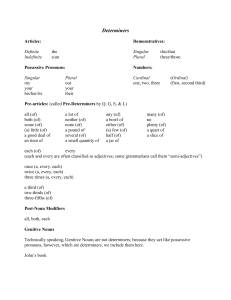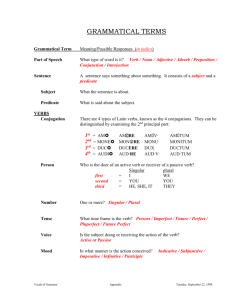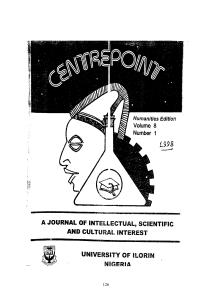The Saxon Genitive, the of-phrase and noun phrases
advertisement
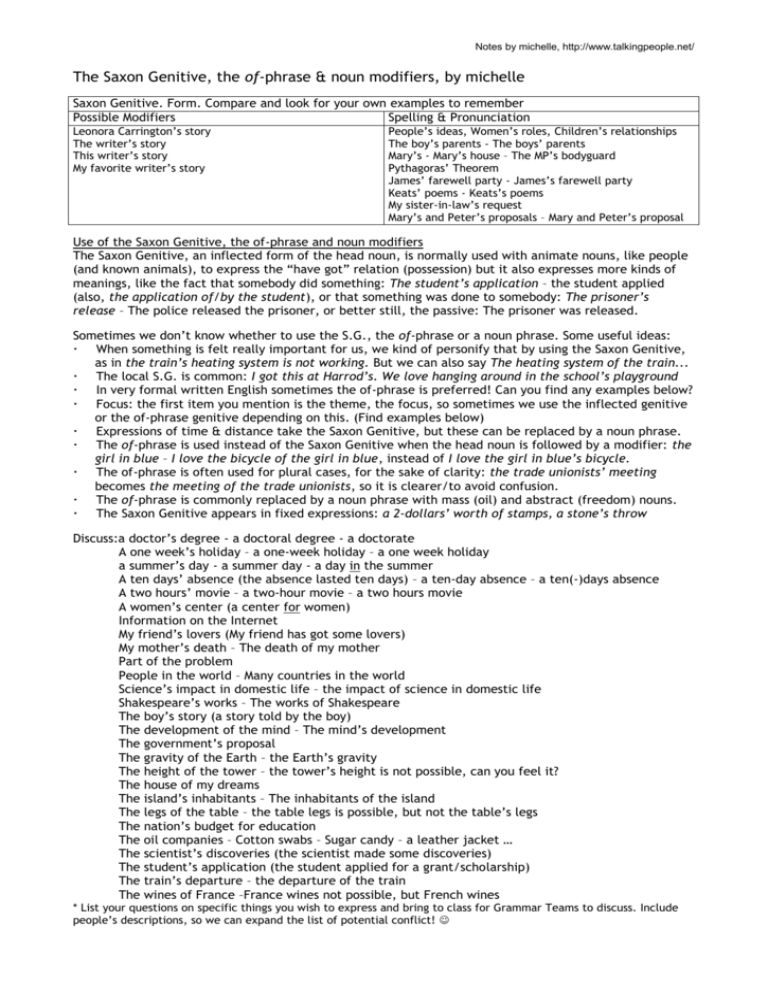
Notes by michelle, http://www.talkingpeople.net/ The Saxon Genitive, the of-phrase & noun modifiers, by michelle Saxon Genitive. Form. Compare and look for your own examples to remember Possible Modifiers Spelling & Pronunciation Leonora Carrington’s story The writer’s story This writer’s story My favorite writer’s story People’s ideas, Women’s roles, Children’s relationships The boy’s parents - The boys’ parents Mary’s - Mary’s house – The MP’s bodyguard Pythagoras’ Theorem James’ farewell party - James’s farewell party Keats’ poems - Keats’s poems My sister-in-law’s request Mary’s and Peter’s proposals – Mary and Peter’s proposal Use of the Saxon Genitive, the of-phrase and noun modifiers The Saxon Genitive, an inflected form of the head noun, is normally used with animate nouns, like people (and known animals), to express the “have got” relation (possession) but it also expresses more kinds of meanings, like the fact that somebody did something: The student’s application – the student applied (also, the application of/by the student), or that something was done to somebody: The prisoner’s release – The police released the prisoner, or better still, the passive: The prisoner was released. Sometimes we don’t know whether to use the S.G., the of-phrase or a noun phrase. Some useful ideas: When something is felt really important for us, we kind of personify that by using the Saxon Genitive, as in the train’s heating system is not working. But we can also say The heating system of the train... The local S.G. is common: I got this at Harrod’s. We love hanging around in the school’s playground In very formal written English sometimes the of-phrase is preferred! Can you find any examples below? Focus: the first item you mention is the theme, the focus, so sometimes we use the inflected genitive or the of-phrase genitive depending on this. (Find examples below) Expressions of time & distance take the Saxon Genitive, but these can be replaced by a noun phrase. The of-phrase is used instead of the Saxon Genitive when the head noun is followed by a modifier: the girl in blue – I love the bicycle of the girl in blue, instead of I love the girl in blue’s bicycle. The of-phrase is often used for plural cases, for the sake of clarity: the trade unionists’ meeting becomes the meeting of the trade unionists, so it is clearer/to avoid confusion. The of-phrase is commonly replaced by a noun phrase with mass (oil) and abstract (freedom) nouns. The Saxon Genitive appears in fixed expressions: a 2-dollars’ worth of stamps, a stone’s throw Discuss:a doctor’s degree - a doctoral degree - a doctorate A one week’s holiday – a one-week holiday – a one week holiday a summer’s day - a summer day - a day in the summer A ten days’ absence (the absence lasted ten days) – a ten-day absence – a ten(-)days absence A two hours’ movie – a two-hour movie – a two hours movie A women’s center (a center for women) Information on the Internet My friend’s lovers (My friend has got some lovers) My mother’s death – The death of my mother Part of the problem People in the world – Many countries in the world Science’s impact in domestic life – the impact of science in domestic life Shakespeare’s works – The works of Shakespeare The boy’s story (a story told by the boy) The development of the mind – The mind’s development The government’s proposal The gravity of the Earth – the Earth’s gravity The height of the tower – the tower’s height is not possible, can you feel it? The house of my dreams The island’s inhabitants – The inhabitants of the island The legs of the table – the table legs is possible, but not the table’s legs The nation’s budget for education The oil companies – Cotton swabs – Sugar candy – a leather jacket … The scientist’s discoveries (the scientist made some discoveries) The student’s application (the student applied for a grant/scholarship) The train’s departure – the departure of the train The wines of France –France wines not possible, but French wines * List your questions on specific things you wish to express and bring to class for Grammar Teams to discuss. Include people’s descriptions, so we can expand the list of potential conflict!


